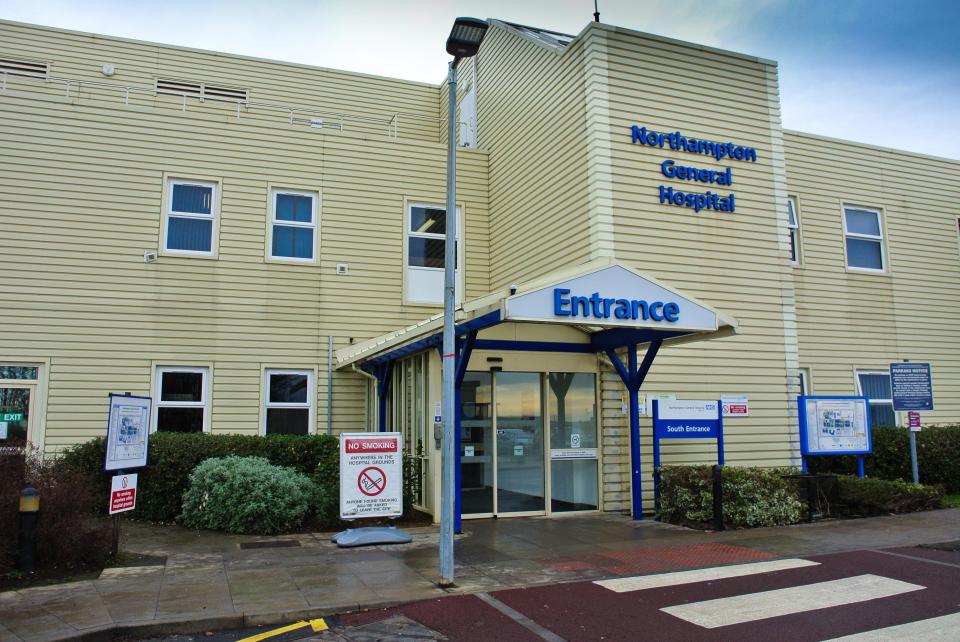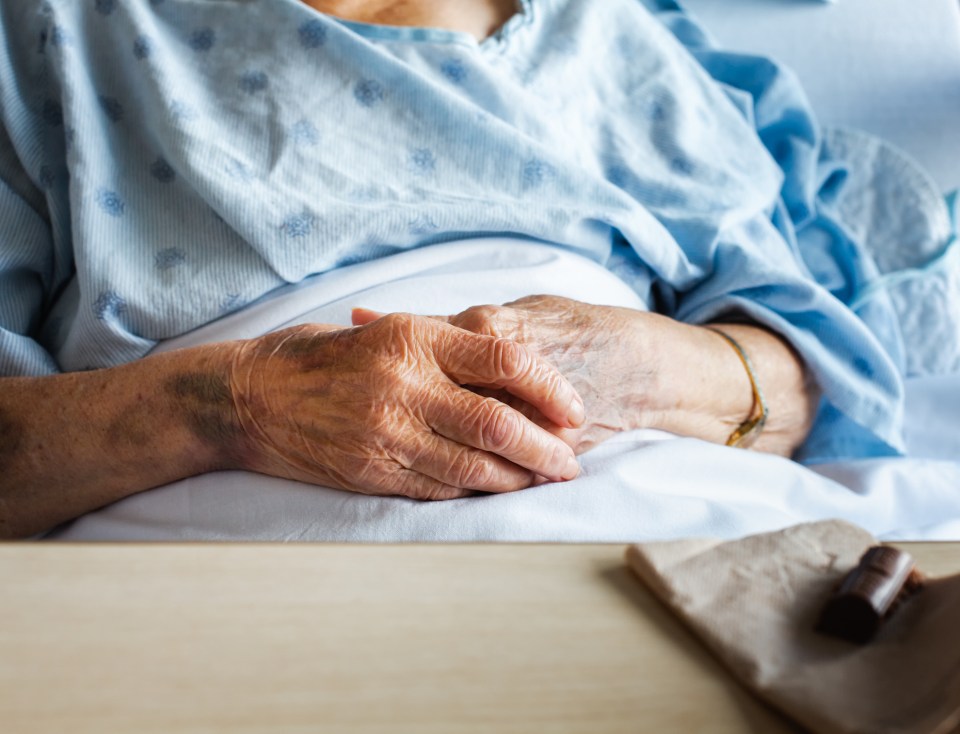OAPs are left stranded in hospital for up to a year because of delays finding home care
Suggestion to send elderly patients on luxury holiday to clear beds was only 'half joking' claims source

ELDERLY patients are being left stranded in hospital for up to a year because of delays in finding home care.
Northampton General Hospital yesterday admitted one dementia sufferer was admitted with a minor physical condition and remained on a geriatric ward for 12 months.
That is despite being well enough to be discharged.
They currently have one patient who has been at the hospital for nine months.
And stays of 100 days are not uncommon.
RELATED STORIES
An average of 100 elderly patients are “stranded” at Northampton General at any given time, figures show.
That is equivalent of three blocked wards.
The crisis is being caused by chronic delays in finding home care, with waits for a standard package - two carers attending four times a day - of “at least six weeks to eight weeks”.
The dire situation has been made worse after NHS Nene Clinical Commissioning Group recently stopped paying for dementia patients to stay at Angela Grace Care Centre in Northampton.
In its place, dementia patients discharged from hospital were supposed to receive home care from NHS Northamptonshire Healthcare, but staffing levels and costs have caused a backlog.
Hospital bosses now admit they have three wards full of patients who are termed “stranded” because there are no resources to provide care at home.
Nationally, bed-blocking reached record levels in September.
There were 6,777 patients delayed from being transferred out of hospitals in England on the last Thursday of the month.
That is up 29 per cent on the equivalent figure a year ago and a new high for the sixth month in a row.
Bed-blocking costs the NHS £800million a year.
HOSPITALS 'FULL' ALERT
THE NHS is “approaching the eye of the perfect storm” with hospitals so full, experts warn.
Overcrowding causes more risk of infections, health think tank the Nuffield Trust says. Almost all beds in England were filled last winter and it is tipped to be worse this time. Dr Mark Holland, president of the Society for Acute Medicine, said: “Just over a year ago we suggested that the NHS in England faced a ‘perfect’ storm and we are now approaching the eye of it.”
Dr Sonia Swart, chief executive of Northampton General Hospital, said: “We have been having problems accessing the pathway efficiently.
“Patients with delirium and dementia do sometimes stay much too long in the acute hospital setting because of this.
“It is not the solution, but it is what is happening.
“What they are seeing is that they have not got dementia, they have delirium and they might get better, so they can’t be put in a dementia place.
“If they had dementia, they’d have much more support.”
Staff at the hospital claim the deadlock in after-hospital care means patients are becoming “trapped” on the wards.
A spokesperson said: “At any given time in the hospital there are 100 patients, mostly elderly, who are on the wards when they should be at home with after care in place.”
One staff member said: “There is this assumption that they are ours to deal with.
“But hospitals don’t have the specialist skills because it’s not what we do. Effectively, these people are trapped here.”
Another said: “An NHS colleague had this idea of putting them on a cruise ship, and they were only half joking.
“They would probably enjoy it, it would be good for them, and it would be cheaper than keeping them in hospital.”
As a result of the bed-blocking, the hospital has incurred fines for failing to hit performance targets and is currently £15million in the red.
Health campaigners are now desperately urging the Government to address the issue and pump more cash into the service to alleviate the back log of patients marooned on wards.
Mark Major, of Northamptonshire Carers, said: “Dementia patients are at increased risk of infection.
“People can obviously be very disorientated and distressed sometimes and can be moved to different parts of the hospital.
“That becomes difficult for them and for their families.”
Helen Crawford, from Alzheimer’s Society, said: “Hospital can be a frightening place for people with dementia, who often struggle to adapt to a new environment and routine.
“Despite the best efforts of dedicated NHS staff, there is a risk that people’s condition worsens whilst in hospital, which can have devastating consequences.
“Cuts to social care budgets from central Government over the last few years have created a situation where many people with dementia are marooned in hospital because they can’t get the right support in the community.
“This spiral of decline needs to be addressed. It hardly seems possible, but dementia, the most tragic condition yet discovered, is being made sadder still, by a health system flat on its back and barely able to move.”















